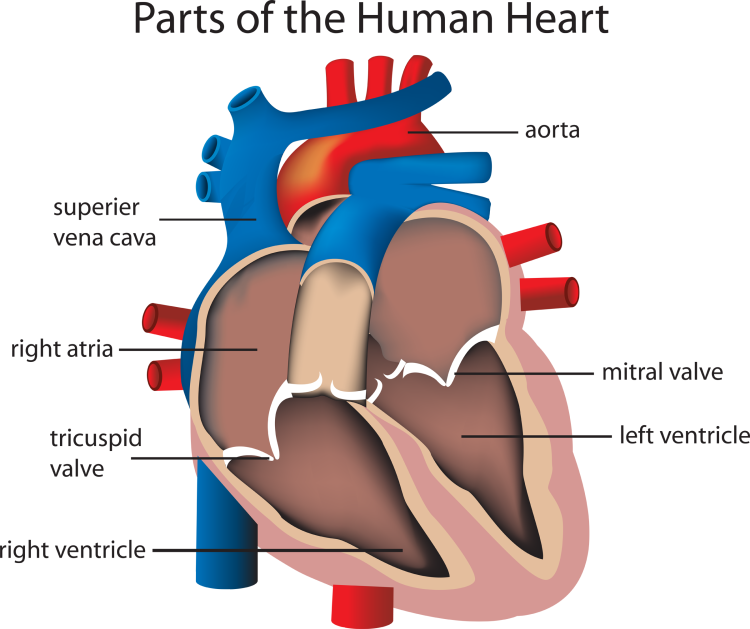It is a topic that has been debated over the past few decades, and regardless of what some people tell you, cardiovascular exercise, or "cardio" as it is often referred to is paramount to your health, especially if you're lifting weights. Is it important to perform cardio on a regular basis? There is conflicting evidence gathered by athletes and coaches over the years, which suggests for and against. Some say that constant cardio will accelerate the breakdown of muscle tissue hence resulting in no real net gains. While others suggest that cardio vascular exercise will improve metabolism, and help burn fat. All of these findings are true and have their place. However, one thing is often ignored, and that is the health of the athlete's or trainers heart!
Reality is, cardiovascular exercise is just as important as lifting weights, dieting or performing any other physical activity. Whenever I am asked whether it is important to do any cardio I always reply with a big: "YES!" which is then followed by: "ignore the personal trainer if he/she tell you to avoid cardio at costs in order to maximise gains," Yes by dieting you will burn the fat off in time, but you will also do more damage to your heart in the process than you actually realise.
There are plenty of fitness celebrities online that claim to never do cardio and get extremely lean, shredded in fact, it is all true, but at what cost? When we exercise we perform two types of movements: a) static exercise and b) dynamic exercise.
a) Involves standing in the same spot and lifting weights, which means that you're not traversing through space, but are performing a movement in the same position. To accomplish this the blood pressure is elevated by the heart to help increase the power output. Thus allowing the muscles to exert a lot more power and lift. Hence, the ventricles of the heart are working harder once the pressure is increased.
b) Involves moving from one point in space to another; this is generally prevalent in sports, every day chores and anything that relates to physically relocating. A good example of this is football, you're exerting a powerful kick while running. When dynamic exercise is performed the Atriums of the heart are working harder. Aerobic training results in the heart being able to pump a larger volume of blood through an increase in the size of the ventricles.
If only static exercise is performed and no cardiovascular activity accompanies these strenuous efforts, then what tends to happens is the Ventricles of the heart
outgrow the Atriums. This imbalance is called "Ventricular Hypertrophy," and it leads to heart failure over long periods of time. You may be the genetic elite and will have a heart strong enough to endure most things and keep working through such prolonged levels of stress, but it is unlikely, that you will fall within that category. Hence, the old tales of power athletes and some American Football players dropping in the middle of the field from heart failure. Please do your cardiovascular exercise and stop looking for excuses, because in the end you will be gambling with your health.
AND NO YOU WILL NOT LOSE YOUR GAINS, BECAUSE YOU ARE NOT RUNNING A MARATHON EVERY DAY.
(Cardio vascular exercise involves raising your heart rate and keeping it elevated for prolonged periods of time, and heavy breathing is a good sign. You don't have to do it too often. I personally recommend two to four times per week for up to 30 minutes per session. You can make it easier on yourself, by running or cycling hard before a training session as a warm up; and obviously the more muscle mass you have the more you will need to do.)


Interesting post.
Do you believe cardio training should be done at high intensity/low intensity or a mixture of both for best results as it pertains to strengthening the heart?
I have personally obtained the best results by varying the cardio. I mix low intensity and high intensity cardiovascular exercise. I think variation is important to stimulate the heart as much as possible.
What I do personally is if the weather is bad I get on a treadmill and walk at a speed of 6 km/h for 5 minutes then increase it to 10 km/h for 5 minutes, then up to 11 km/h for a further 5 minutes and then finally I reach a speed of 12 km/h for 5 minutes. By the end I am sweating like as if I got out of the shower. I feel great and due to this I have been able to train harder and longer in the gym; my sleep has improved and I can eat more, because I am burning more calories.
Hi! I am a robot. I just upvoted you! I found similar content that readers might be interested in:
http://www.hmbhealth.com/BLOGGERS/PhilipStrongJourneytoCompete2016/tabid/4993/entryid/1243/Importance-of-cardiovascular-exercise.aspx
Hello, that is because I wrote that article back in 2015 from memory. Then I decided to paste my article here.